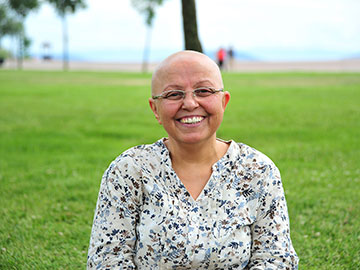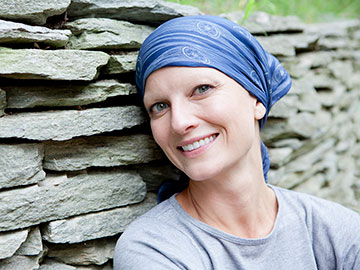
Supervivencia
Hay millones de personas en Estados Unidos que son supervivientes de cáncer. Muchas dicen que sintieron que tenían mucho apoyo durante su tratamiento, pero que una vez que este finalizó, les resultó difícil hacer la transición a una nueva forma de vida. Fue como entrar a un mundo totalmente nuevo donde tuvieron que adaptarse a nuevos sentimientos, nuevos problemas y distintas formas de ver el mundo.
Una nueva normalidad
Formas de adaptarse a los cambios físicos y emocionales después del tratamiento del cáncer y consejos para superar el temor de que regrese el cáncer.
Formas de adaptarse a los cambios físicos y emocionales después del tratamiento del cáncer y consejos para superar el temor de que regrese el cáncer.
Cuidados médicos de seguimiento
Información sobre cuidados médicos de seguimiento para pacientes que han finalizado el tratamiento del cáncer. Habla sobre su plan de cuidados de seguimiento, cómo obtener un plan de bienestar y pautas para un estilo de vida saludable.
Información sobre cuidados médicos de seguimiento para pacientes que han finalizado el tratamiento del cáncer. Habla sobre su plan de cuidados de seguimiento, cómo obtener un plan de bienestar y pautas para un estilo de vida saludable.
Cambios físicos
Información sobre los cambios físicos que usted puede presentar después de que termina el tratamiento del cáncer.
Información sobre los cambios físicos que usted puede presentar después de que termina el tratamiento del cáncer.
Asuntos familiares
Trata sobre los problemas y asuntos familiares comunes que suelen ocurrir después del tratamiento y maneras de hacer frente a los mismos.
Trata sobre los problemas y asuntos familiares comunes que suelen ocurrir después del tratamiento y maneras de hacer frente a los mismos.
Con lo difícil que es el tratamiento, muchos supervivientes de cáncer dicen que la experiencia les llevó a hacer cambios importantes en sus vidas. Les ayudó a aprender el valor de estar agradecidos por cada día y por las personas que quieren.
Coping – After Treatment - National Cancer Institute
Survivorship
There are millions of adults and children in the United States who are cancer survivors. Many say that they felt they had lots of support during their treatment, but once it ended it was hard to make a transition to a new way of life. It was like entering a whole new world where they had to adjust to new feelings, new problems, and different ways of looking at the world.
- A New NormalAdjusting to physical and emotional changes after cancer treatment and tips on coping with fear of recurrence.
- Getting Follow-Up Medical CareInformation about follow-up medical care for patients who have completed cancer treatment. Discusses your follow-up care plan, getting a wellness plan, and guidelines for a healthy lifestyle.
- Late Side Effects of Cancer TreatmentCancer treatment can cause late side effects that may not show up for months or years after treatment. These late effects may include heart and lung problems, bone loss, eye and hearing changes, lymphedema, and other problems.
- Family Issues after TreatmentDiscusses common family problems and issues that often occur after treatment and ways to cope.
- Survivorship Care for ChildrenSurvivorship care for children who have been treated for cancer is important. Get your child's treatment summary, survivorship plan, and recommendation on follow-up care clinics. Learn about long-term and late effects.
- Questions to Ask Your Doctor When You Have Finished TreatmentSuggested questions for cancer patients to ask their doctors after treatment is finished and they are planning for follow-up care and next steps.
As hard as treatment is, many cancer survivors say that the experience led them to make important changes in their lives. It helped them learn the value of being grateful for each day and for the people in their lives.
























.png)










No hay comentarios:
Publicar un comentario